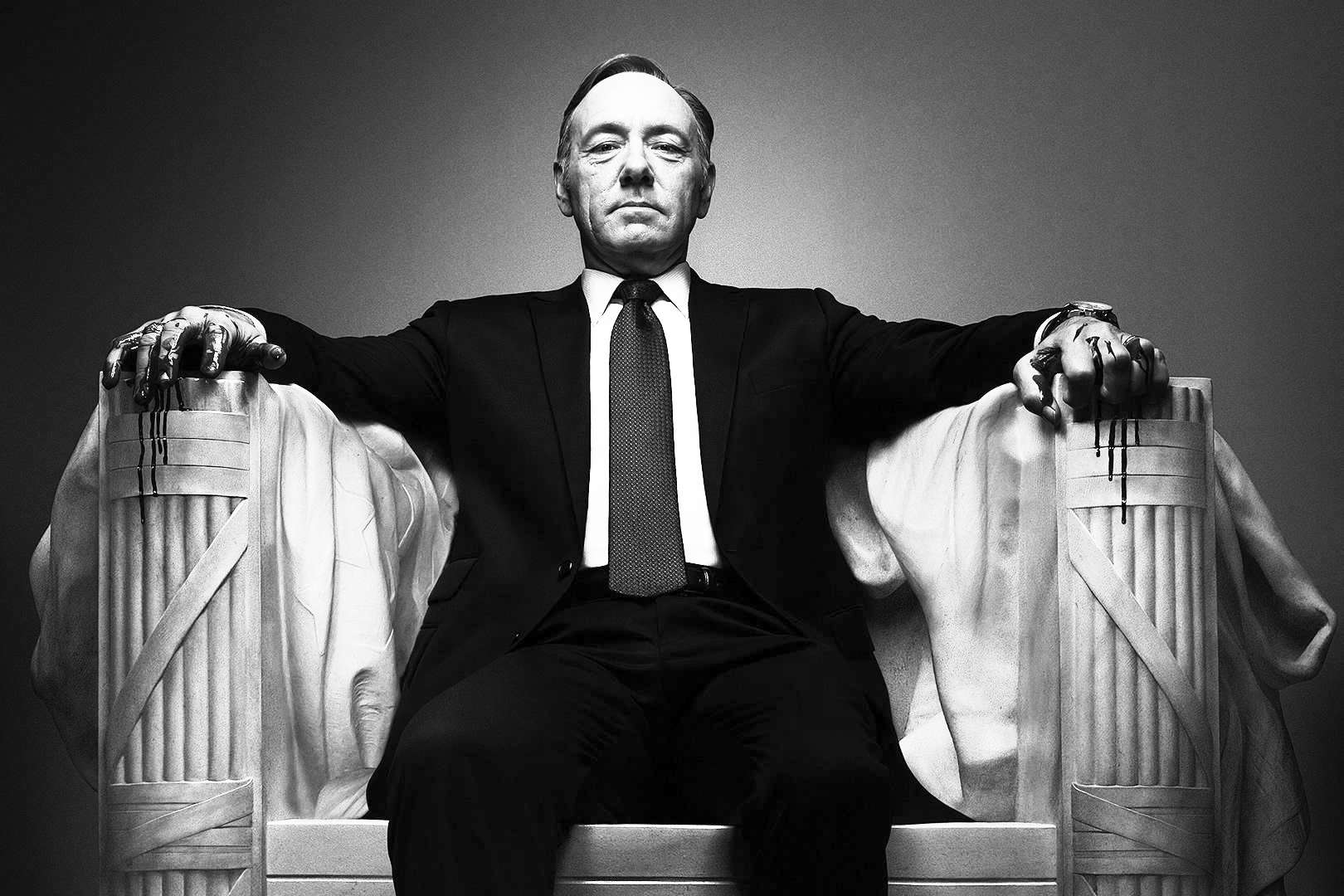The release of House of Cards Season 2 last Friday may have been the closest we’ve come as a species to matching the amount of spoiler-induced anxiety that Harry Potter and the Deathly Hallows generated when it first became available. For fans of the show who weren’t able to take in the long anticipated, 13-episode bombshell right after it became viewable on Netflix, every passing conversation or social media outlet doubled as a minefield full of unwanted information that could detonate at any moment. And after the first 60 minutes of Season 2 alone, potential spoiler figures like myself already had plenty of ammunition to work with.
If you’ve seen Season 1 and haven’t yet gotten around to watching the sequel, consider this review a safe haven from any of Season 2’s detrimental plot details: just some gut reactions and extremely broad analysis of what proved to be a mildly disappointing follow-up to a highly acclaimed debut.
With its initial volume of simultaneously released episodes, House of Cards was lauded for being a daring, fast-paced political narrative that takes the notion of corruption in Washington to uncharted territory. Season 2 doesn’t abandon that formula, but at times, it uses a watered-down version of it—one that leaves various episodes prone to stretches of lulled action.
In some ways, that can be attributed to the general plot arc of the season. When we last left Frank Underwood (Kevin Spacey), he had completed his deceptive and improbable rise to vice-presidency, which was fueled after President Walker (Michel Gill) passed him over for Secretary of State. The political snub spurred Underwood and his equally shrewd wife, Claire (Robin Wright), to orchestrate an elaborate revenge plot that centred on Frank seizing power at any cost.
This season, it’s evident that the couple have their sights set on crossing the next frontier—by becoming President and First Lady—but we rarely see them scheme together with the same hunger they displayed in Season 1’s frequent nighttime meetings by the windowsill. Since the steps along the way are less clearly defined, it ends up feeling like more of a leisurely stroll to power than the march it once was.
This isn’t to suggest that Frank has lost his edge—he’s still the same man that’s capable of cold-blooded murder when he has to. As Frank so bluntly puts it in one of his trademark addresses to the viewer, “There are two types of vice-presidents: doormats and matadors. Which do you think I intend to be?” Frank is unquestionably one of the latter, but his newfound vice-presidential duties tend to have him managing crises instead of actively seeking out obstacles to take down—not to mention all the time he has to spend buttering up his uninspiring presidential boss.
In terms of supporting characters, House of Cards keeps a good portion of the group it started with intact, but also makes some key—and unexpected—changes. Of all the newcomers, Jackie Sharp (Molly Parker) makes the most consistent impact, taking over Frank’s role as House Majority Whip after he handpicks her. Otherwise, the writers keep us guessing for most of the season with regards to who will step up in any given episode; there’s a willingness to let presumably minor characters suddenly take on bigger roles, and for old faces to unexpectedly resurface.
That approach has mixed results: sometimes it creates intriguing supplementary storylines, and at other times, it leads to dead ends. However, the caveat with the latter scenario is that those moments may be laying the foundation for something bigger down the road. One of the show’s signature tactics is to bring its characters’ recent pasts into the open—as it does prominently with Claire this season—so it makes sense that its writers would already be thinking ahead to Season 3.
While Season 2 of House of Cards may not have been the dynamic force that its predecessor was, it still delivers a steady stream of absorbing content that justifies a 13-hour binge-watch. It also features a handful of “OH MY GOD, DID THAT JUST HAPPEN?” moments, the most startling of which happens in the season’s first hour and will—quite literally—leave you frozen in your tracks. By the time it’s all over, the main storyline continues to grow as the show’s title suggests it will, into an intricate structure whose grandeur is matched only by its vulnerability.
Already saw Season 2? Check out our in-depth, spoiler-filled review and see if you agree with our thoughts on the show!








